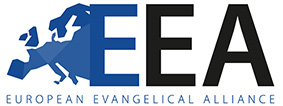In this newsletter:
Editorial:
Disrupted Lives
The other day I listened to a report from the Greek island Kos. More than 7000 refugees got stranded on this holiday destination island with a population of 30,000 people. Every day several hundred arrive. Things started to seriously get out of hand. On the one hand, there are the refugees who lack the bare necessities of life. On the other hand, there are the tourists in nice hotels, having plenty and looking forward to a relaxing holiday at the beach. They obviously do not want to have their holidays disrupted. Caught in the middle are the local people who fear for their livelihood, that tourists would not come anymore because of this severe situation. And let’s not forget the totally overwhelmed authorities who do not know how to deal with this ever more pressurised situation.
A picture of Europe
Kos displays in a very stark way the dilemma Europe is facing. In comparison with many countries in this world we are (still) a quite well off continent. Of course, it can always be better and there are definitely many who do not know how to make ends meet. But it depends with whom we compare ourselves.
And this is why many countries in Europe do face increasing immigration pressure.. If you need food on the table or have lost everything, where do you turn? You look for an alternative which is better. And for many people in this world better means Europe.
This comes as a threat to many Europeans. Not only the threat of the foreigner invading the place but also the foreigner competing for jobs and resources. Ultimately this is felt as a threat to European prosperity.
Increasing pressure
Immigration will not go away quickly. There are 59 million displaced people and, on top of that, many who cannot make ends meet. They are looking for a safer and better place. Europe seems to be that better and safer place and therefore the pressure to get into Europe is ever increasing. Higher fences, tighter boarder control, turning down more asylum applications and all the more will not deal with the problem but only with the symptoms. The higher the obstacles, the more pressure will build up.
By the way: over 80% of the refugees are hosted by countries of the two-third world. They often are neighbouring countries with far less resources than we have in Europe. But of course the average displaced person does not want to settle in another place but simply go back home.
Are there any solutions?
There are many clever people who wrestle for solutions. They have different interests and different views. It is very, very complex.
What are Evangelicals to do?
Promote prayer. Pray for the needs of the displaced. Pray for governments in all their different efforts. Pray for peace in the war-torn countries. Pray, pray, pray …
Get involved practically locally. Many asylum seekers are looking for a peaceful environment. Being hospitable, asking how one can be involved in helping is already great.
Support initiatives which try to build peace and reconciliation. And support initiatives which help rebuild shattered countries, shattered lives …
Immigrants will not just go away in the near future. The Bible says much about the foreigner and how to treat him.
Let us be known as people of grace, mercy and love. Let us work tirelessly on all levels sharing God’s love in the broadest meaning of the word.
Yours

Thomas Bucher
In this newsletter:





